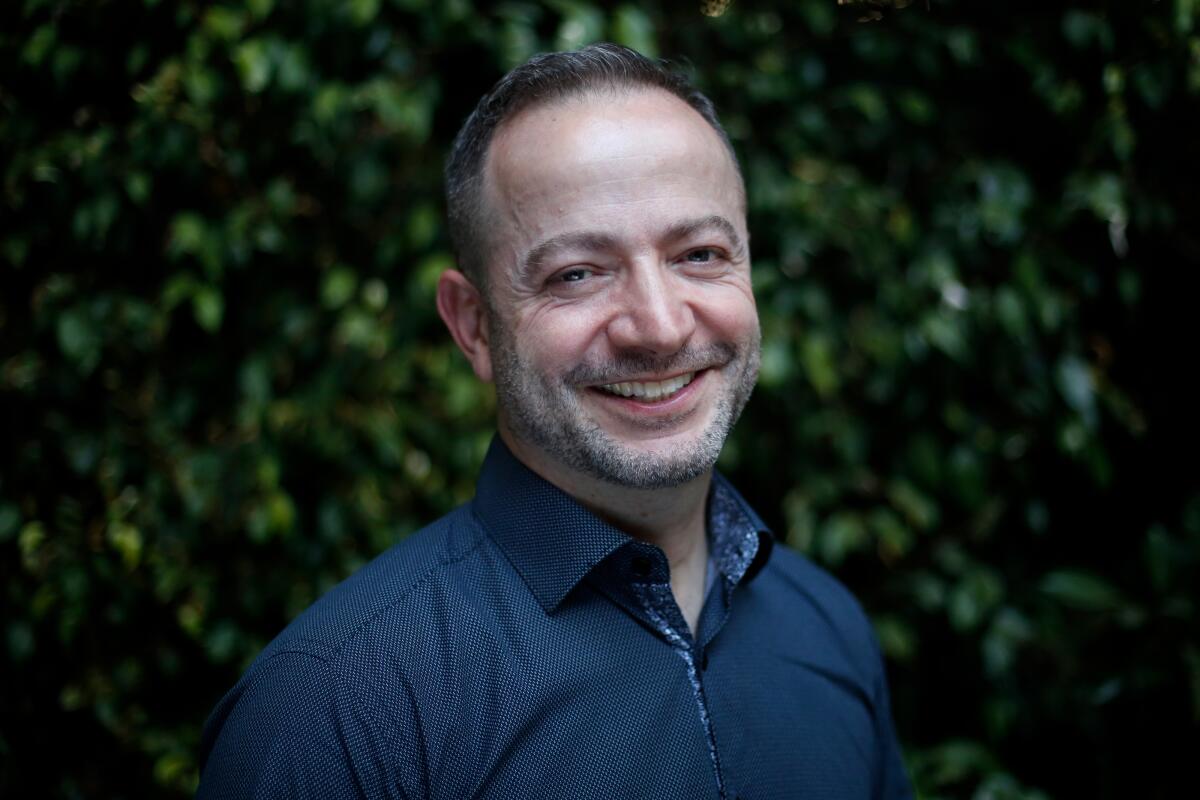‘Dark Waters’ spans a 20-year legal case. But its message is for right now

- Share via
I jumped at the chance to work on “Dark Waters” for one simple reason: Todd Haynes. And I won’t lie, everything else about the project scared me to death.
Based on Nathaniel Rich’s New York Times Magazine cover story, “The Lawyer Who Became DuPont’s Worst Nightmare,” “Dark Waters” centers on Rob Bilott, a corporate attorney for the chemical industry who discovers that DuPont has been contaminating his childhood community of Parkersburg, W.Va (the culprit is a toxic chemical used in Teflon, now present in the blood of 99% of human beings). Rob embarks on a decades-long legal battle against not only DuPont, but the scientific, legal and governmental establishments the company had long held captive.
At our very first meeting, Todd and I shared how much we loved the great whistleblower films of the ‘70s and ‘80s — “All the President’s Men,” “The China Syndrome,” “Silkwood.” In the story of Rob Bilott, we had a chance to pay homage to a great American genre with a story that spoke urgently to our time. Here was a corporate defense attorney — a true believer in “the system” — suddenly ensnared in the mousetrap he’d helped build. Fighting his way out would cost him everything. Mark Ruffalo, our passionate producer and star, puts it best: “Rob Bilott is a hero not because we want to be him, but because we don’t.”
And yet Todd, Mark and I felt strongly that “Dark Waters” could not be about one legal case, or even one hero. It would be about us, in 2019. About American communities and institutions co-opted by corporate power, lulled into the belief that if problems exist, someone else will fix them. System failure. That was a story that I knew to be true, because for 15 years, I was a congressional staffer and later a lobbyist in D.C. So I have no illusions that the hero always wins or that justice necessarily prevails. The systems of power that Rob Bilott crashes up against in “Dark Waters” are real. As Rob says in our film, “I know. I was one of them.”
But from a writer’s perspective, “Dark Waters” seemed like a nightmare. First off, the story was massive. Spanning nearly 20 years and two legal cases, each with its own complicated facts and characters, I’d be wrestling an octopus. Thankfully, Matthew Michael Carnahan had done exactly that in his first draft of the script, and I’m very grateful to him (Matt was in Morocco directing when Todd attached and brought me on.) And not only was the story huge, it involved science. Actually, worse than science: Chemistry. You know that dream where you wake up and, 20 years after your last class, the test is today? Well, the test was today.
I faced these demons the only way I knew how: Denial. I couldn’t write an opus about chemistry even if I’d wanted to. I could only write a story about one man — and that from his struggle would emerge a universal story. With incredible support from Todd and Mark (who are as kind as they are unbelievably talented), I would dig beyond the legal story to find what lay below: decades of trauma wrought upon Rob, his family, and the community of Parkersburg.
The final script of “Dark Waters” tells an intensely human story, a deeply personal one. And for that I am deeply indebted to Rob and his wife, Sarah. Through months of incredibly honest and lengthy conversations, they invited me into the most personal corners of their lives. The 18 years depicted in the film were a time of immense pain for the Bilotts, yet not once did they hesitate to “go there.”
And in fact we did go there, and not only with the Bilotts. Rob brought Todd and me to Parkersburg to spend time with the Tennants and the Kigers, the families whose courage to confront DuPont — which had held their community captive for generations — gave Rob the opening he needed to crack the maze.
And yet, as we see in “Dark Waters,” the maze remains. Cracked, but standing. There are no happy endings. But there are Rob Bilotts.
More to Read
Only good movies
Get the Indie Focus newsletter, Mark Olsen's weekly guide to the world of cinema.
You may occasionally receive promotional content from the Los Angeles Times.










